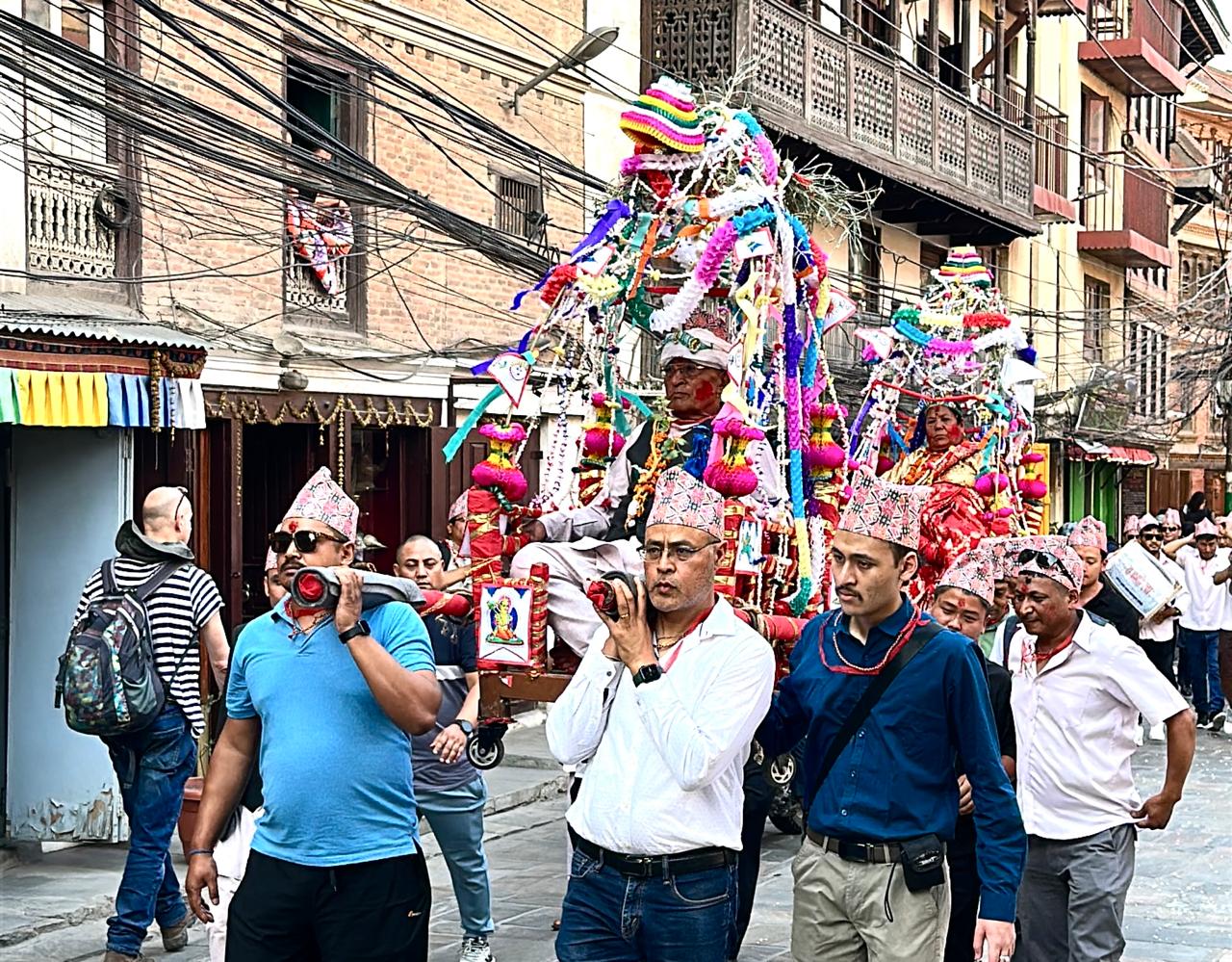Janko Ceremony: A Sacred Celebration of Longevity in Newar Culture

Kathmandu – In the rich tapestry of Newar culture, few events are as revered and spiritually significant as the Janko ceremony — a grand celebration marking a person’s extraordinary journey of life and spiritual rebirth.
Janko, also known as the longevity ritual, is both a religious and social milestone performed when an individual reaches a specific advanced age — the first typically observed at 77 years, 7 months, and 7 days. Subsequent ceremonies may be held at 83, 88, 99, and sometimes beyond, honoring the elder’s rare achievement of longevity and resilience.
According to traditional belief, reaching this age signifies that the person has defeated Yama, the god of death, and is thus considered reborn as a spiritually pure or divine being.
The ceremony is marked by a series of rituals and celebrations:
The honoree undergoes ritual purification and is dressed in ceremonial or deity-like attire, often in white or regal clothing.
The individual is carried in a chariot or palanquin, symbolizing their elevated spiritual status.
The family, extended relatives, and the entire community gather to participate in pujas, traditional music, dances, and feasting.
Janko is not merely a birthday—it is a profound celebration of life, heritage, and the enduring spirit of elders in Newar society. The event reflects the community’s deep-rooted values of respect for age, spiritual attainment, and communal unity.
As modernity blends with tradition, ceremonies like Janko continue to stand as powerful reminders of Nepal’s rich cultural identity and reverence for life’s sacred milestones.



